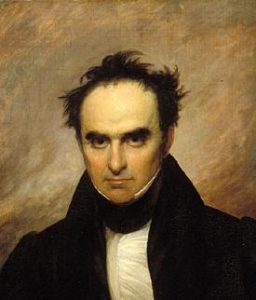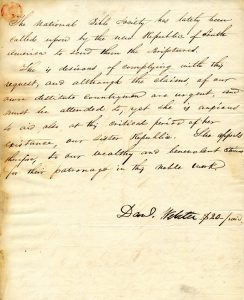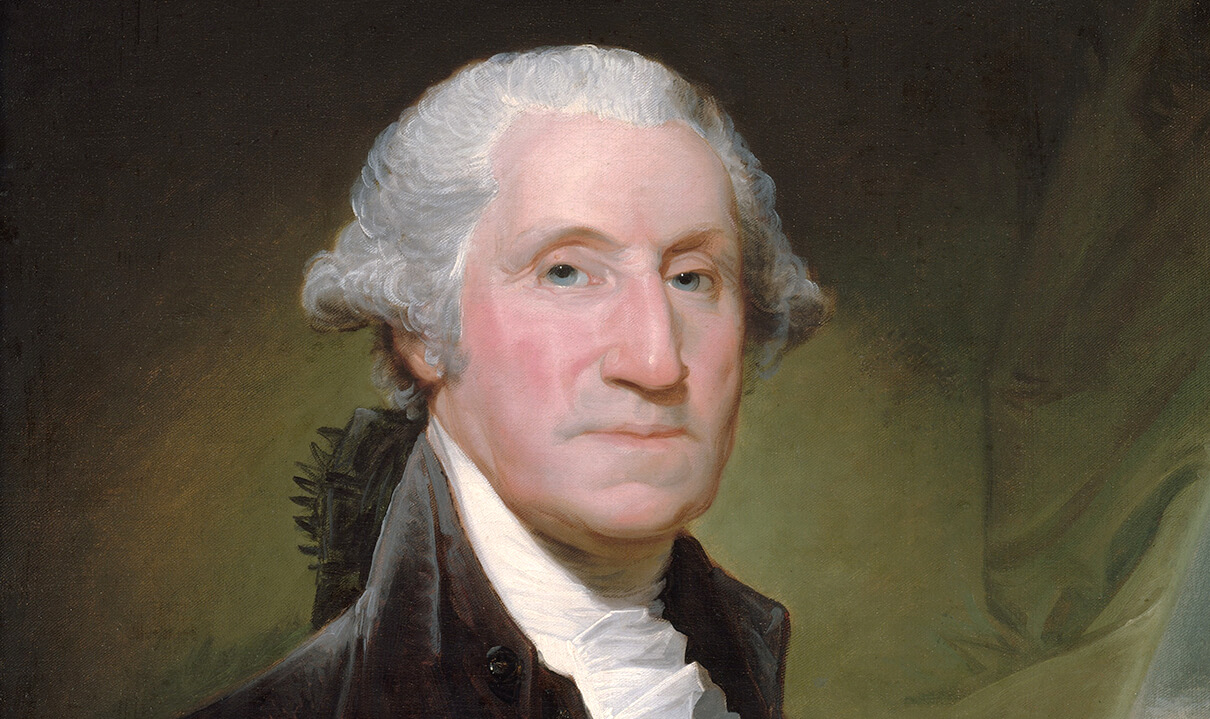 Daniel Webster, an ardent and outspoken Christian known as “the Defender of the US Constitution,” 1 was born on January 18, 1782. In fact, his ability to recite and memorize Scripture as a child was so well known that “it was customary for the teamsters to remark, as they pulled up their horses before the Webster tavern, ‘Come, let’s go in and hear a Psalm from Dan Webster!‘” 2
Daniel Webster, an ardent and outspoken Christian known as “the Defender of the US Constitution,” 1 was born on January 18, 1782. In fact, his ability to recite and memorize Scripture as a child was so well known that “it was customary for the teamsters to remark, as they pulled up their horses before the Webster tavern, ‘Come, let’s go in and hear a Psalm from Dan Webster!‘” 2
In fact, his early school teacher, Mr. Tappan, later recalled, “Daniel was always the brightest boy in the school.” 3 This became quite evident as Mr. Tappan recounted the following story:
He [Daniel] would learn more in five minutes than another boy in five hours. One Saturday, I remember, I held up a handsome new jack-knife to the scholars, and said, the boy who would commit to memory the greatest number of verses in the Bible by Monday morning should have it. Many of the boys did well; but when it came to Daniel’s turn to recite, I found that he had committed so much that, after hearing him repeat some sixty or seventy verses, I was obliged to give up, he telling me that there were several more chapters yet that he had learned. Daniel got that jack-knife. 4
This love and reverence of God’s Word carried over into adulthood. Daniel made it a practice to read through the Bible once a year. 5 His love and reverence for the Scripture is conveyed in this simple story:
This morning, when Mr. and Mrs. Webster, with their guests and servants, had assembled in the library for family prayers, Mr. Webster looked so weak and feeble, that Mrs. Webster asked him if I should not read the chapter. He preferred reading himself, and selected that beautiful chapter of St. Luke, the sixth, which contains a part of the Sermon on the Mount. His reading of the Scriptures is grand, slow, distinct, impressive, giving new force to every sentence. When he came to those verses which follow the twenty-sixth, it seemed as though they were the expression of his own inmost feelings. After each clause of these verses which he read—‘But I say unto you which hear, Love your enemies, do good to them which hate you, bless them that curse you, and pray for them which despitefully use you’—he passed, as if he were asking himself the question, if he read those words in the spirit of Him who first uttered them, and exhibited in his own life and example their practical application. There was an almost triumphant tone as he finished the verses, as though he had heartily forgiven those who had spoken ill of him, and who had despitefully used him. 6
 Additionally, WallBuilders posted from our massive collection of original documents a letter that Daniel wrote in an attempt to help provide Bibles to the people of South America.7 For all of his accomplishments in life, however, it was not his works that he wanted remembered. As explained by the Rev. Otis Skinner in a sermon delivered after Webster death:
Additionally, WallBuilders posted from our massive collection of original documents a letter that Daniel wrote in an attempt to help provide Bibles to the people of South America.7 For all of his accomplishments in life, however, it was not his works that he wanted remembered. As explained by the Rev. Otis Skinner in a sermon delivered after Webster death:
“Let those regard it as a mark of greatness to doubt, remember the faith of Webster! Great as he was, he asked to have engraved upon his tombstone, this simple sentence, He was a believer in Jesus.”8
As we honor the faith and character of Daniel Webster, let us remember the words of Rev. Henry Augustus Boardman:
Those who value our Constitution and who desire the perpetuity of the Union, have great reason to bless God that Daniel Webster loved and studied the Bible.”9
1 Charles F. Richardson, Daniel Webster for Young Americans (Boston: Little, Brown, and Company, 1903); Edwin Erle Sparks, The Men Who Made the Nation: An Outline of United States History from 1760 to 1865 (New York: The Macmillan Company, 1901), 318.
2 Charles Lanman, The Private Life of Daniel Webster (New York: Harper & Brothers, 1852), 22; Rev. Joseph Banvard, Daniel Webster: His Life and Public Services (Boston: D, Lothrop and Company, 1875) 37.
3 Lanman, Private Life of Daniel Webster (1853), 16; Banvard, Daniel Webster: His Life (1875), 30, quoting Master Tappan.
4 Lanman, Private Life of Daniel Webster (1853), 15-16; Banvard, Daniel Webster: His Life (1875), 30-31.
5 Lanman, Private Life of Daniel Webster (1853), 104.
6 G.J. Abbott to a friend, September 12, 1852, George Ticknor Curtis, Life of Daniel Webster (New York: D. Appleton and Co., 1870), II:666.
7 Daniel Webster handwritten letter, undated, WallBuilders.
8 Otis A. Skinner, The Death of Daniel Webster. A Sermon, Delivered in the Warren Street Church, Sunday, November 14, 1852 (Boston: A. Tompkins, 1852), 34.
9 H.A. Boardman, D.D., A Discourse on the Life and Character of Daniel Webster (Philadelphia, Joseph M. Wilson, 1852), 57.
Still looking for answers? Visit our FAQ page
More Resources
Know the Truth and Protect Your Freedoms.
Still looking for answers? Visit our FAQ page
Stay Informed with the Latest Resources
Enter your email address to receive our regular newsletter, with important information and updates right in your inbox!








